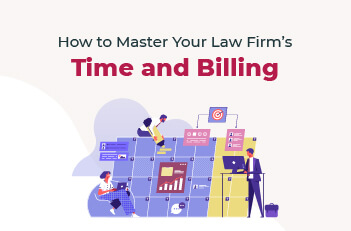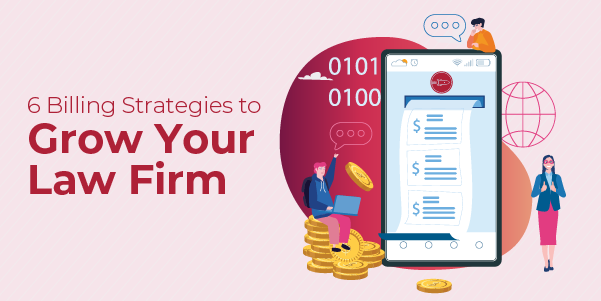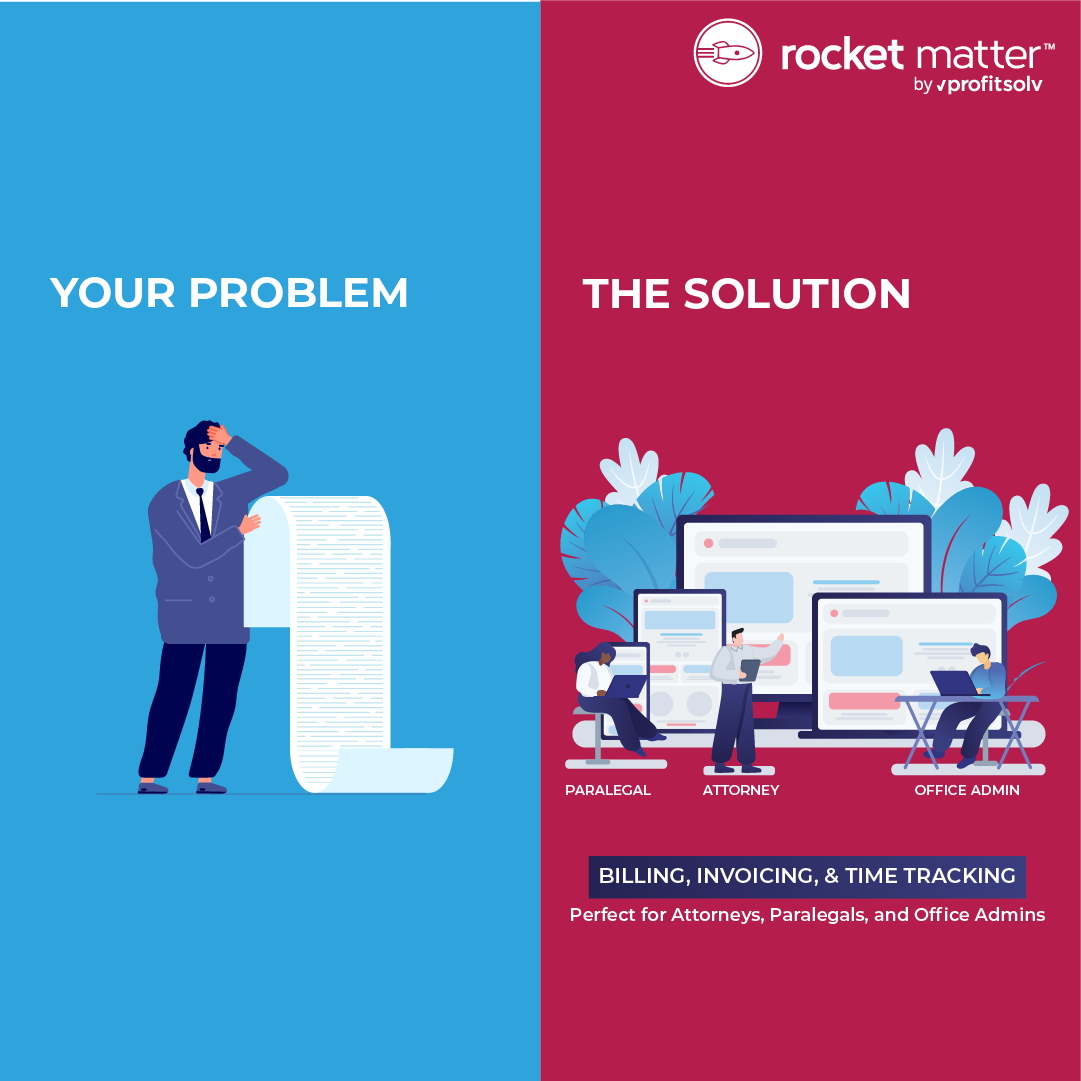Revolutionizing Law: The Top Three Uses of ChatGPT in the Legal Industry

ChatGPT is the new kid on the block—and unless you’ve been living under a rock with no WiFi, you’ve heard about it.
ChatGPT and other AI technologies have the potential to revolutionize the way we work, but many law firms are understandably cautious. AI has its drawbacks, many of which we may not even know about yet, and lawyers want to protect their firm and their clients.
While ChatGPT and other generative AI technologies can’t, and shouldn’t, replace much of the work that legal experts accomplish for their clients, that doesn’t mean law firms should avoid AI at all costs.
There are plenty of responsible use cases where AI tools can help law firms dramatically improve workflows and efficiencies while maintaining compliance, for example, in areas like client intake and communications.
Rocket Matter’s new ChatGPT integration is designed to bring the benefits of ChatGPT to your legal practice management software without the risk. With this integration, legal professionals can take advantage of ChatGPT from their Rocket Matter software directly, while adding additional security measures to protect your firm from liability.
Let’s explore the top three ways you can use ChatGPT to launch your legal practice to new heights!
What is ChatGPT?
ChatGPT falls under a new class of technology called generative AI—artificial intelligence that can create work products similar to what people can create themselves. This type of AI can produce art, text, video, and even audio content.
ChatGPT is a language processing model, sometimes called a “large language model” or “LLM,” designed to respond to user-generated prompts and questions in a conversational tone. ChatGPT was trained on common crawl web data (what you can find publicly online). This gives it the ability to mimic the content that already exists online. By referencing vast amounts of information and sources, ChatGPT can perform tasks like writing social media posts, drafting emails, and generating outlines, summaries, and content ideas.
The company behind ChatGPT is OpenAI, an AI research and development company. While OpenAI was initially a non-profit, it has since transitioned to a private, for-profit company with a commercial partnership with Microsoft.
When law firms should use their best judgment with ChatGPT
ChatGPT has access to a vast amount of information, but it doesn't have access to anything published on the internet after September 2021. It also lacks the ability to browse specific sources. Its output may not include the most up-to-date information, especially in areas of the law that include evolving state and federal regulations.
And you know that phrase, “don’t believe everything you read on the internet”? Remember that ChatGPT is based on public information on the internet. Its output is a reflection of the internet, which means that it’s not always 100% correct.
Professionals should take all generated content with a grain of salt and have it reviewed for accuracy by a subject matter expert.
Lawyers across the country are also keeping an eye on privacy laws and copyright infringement concerns. ChatGPT and other generative AI may have copyright implications worldwide, and the EU is currently investigating if ChatGPT violates the General Data Protection Regulation (GDPR).
On the other hand, firms that embrace generative AI have an opportunity to dramatically improve productivity and workflow efficiencies, and AI isn’t going away any time soon. At the end of the day, users that exercise caution and sound judgment can get the benefits of ChatGPT (and there are a lot) while minimizing associated risks.
For example, law firms that use Rocket Matter’s ChatGPT integration can use generative AI with less risk. By going through Rocket Matter’s system instead of ChatGPT’s website, lawyers protect sensitive data; OpenAI doesn’t use customer-submitted data via their API to train their models or improve their services.
Three ways law firms can use ChatGPT to improve their productivity
ChatGPT is most effective when it’s used as a sounding board. This can include rough drafts, content ideas, and other workflows that go through review before it reaches your target audience. This makes it an excellent tool for the client intake process, marketing, and general client communications.
Here’s how you can implement ChatGPT at your legal practice today.
1. Drafting client intake document templates
ChatGPT may not be reliable for generating sound legal documents, but it is a fantastic way to create document templates for future use. With ChatGPT, lawyers can substitute hours of work every month for 30 minutes of work one time. Law firms can use ChatGPT to draft initial document templates for each stage of the client intake process, including service agreements, email reminders, and other welcome documents.
Document template prompts
- Draft a welcome letter for a new client joining my law firm for family law. Make the tone…
- Use the attached document to create a more casual and approachable explanation of our client portal in 500 words or less.
Free Guide
The Paperless Law Office: A 12-Month Plan
for Going Paperless
This free guide will provide you with an actionable plan for going paperless, with monthly tasks that include:
1. Determining your paperless processes
2. Establishing naming and filing conventions
3. Choosing an online storage provider
4. Embracing mobile paperless tools
5. And more important resources!
2. Client communications
Client communications can be incredibly repetitive. Legal staff often write the same emails over and over, including meeting reminders, responses to potential client inquiries, requests for signatures, and other emails.
Instead, use ChatGPT to build communication templates that enable legal staff to respond to clients faster.
Client communication prompts
- Write a semi-formal email thanking clients for joining our firm one year ago today, in under 300 words.
- Create a polite email reminder for the recipient that they have an upcoming consultation appointment.
- Draft an email intended for individuals who started the intake process at our law firm, but haven’t moved past the _____ stage. Encourage them to move forward by taking this action…
3. Support your marketing activities
Marketing your law firm is vital to achieving your growth goals, but amidst all the other billable and non-billable activities, crafting marketing content often takes the backseat.
While ChatGPT has limitations when it comes to content creation, it’s an excellent starting point for busy law lawyers dealing with a heavy mental load. Instead of conceptualizing a blog post or penning an email sequence from scratch, ChatGPT can begin the drafting process with a few easy prompts.
Law firm marketing prompts
- Outline an email newsletter for a business law firm for referral sources
- Create five blog concepts for a California-based intellectual property law firm
- Write a social media post welcoming new attorneys to the firm. Make the tone …
As with all ChatGPT suggestions, use careful editorial oversight when reviewing AI outputs. While you may get many valuable suggestions, they should be adjusted to meet your branding, audience, and practice area needs, not to mention account for legal marketing compliance requirements.
4. Meeting prep
Meeting preparation often takes more time than the meeting itself, especially for contentious case matters. Use ChatGPT to draft basic agenda templates and meeting reminders so that you can focus on high-level meeting prep for a more productive discussion.
Meeting prep prompts
- Write an email reminder that our meeting is in two hours, and include that our meeting has been moved from room A to room B
- Create a meeting agenda template that includes a list of participants, space for main topics and subtopics, and updates from issues raised in previous meetings
- Summarize this report in one paragraph using less than 250 words
Explore Rocket Matter’s ChatGPT integration.
Reshape the way you work with ChatGPT. Access AI tools directly through Rocket Matter to gain a competitive edge while protecting your firm. Schedule a demo to discover how Rocket Matter can transform your law firm's efficiency with ChatGPT.
Related Resources

How to Increase Your Profits with Rocket Matter
Lawyers in firms of all sizes struggle to finish the work for the day in a reasonable amount of time. With document creation, non-billable tasks, and time spent following up with current and potential clients, the workday quickly turns from a planned eight-hour day into a twelve-hour one.

How to Master Your Law Firm’s Time and Billing
Lawyers have a heavy workload. With so many clients and their various needs, it’s easy to put tedious administrative tasks like time tracking and billing on the back burner.

6 Billing Strategies to Grow Your Law Firm
Scaling your law firm doesn’t just mean adding more lawyers or increasing your number of clients. The best way to boost your law firm’s finances is to minimize your non-billable hours and make sure that every hour of your day is accounted for.
Share post:









